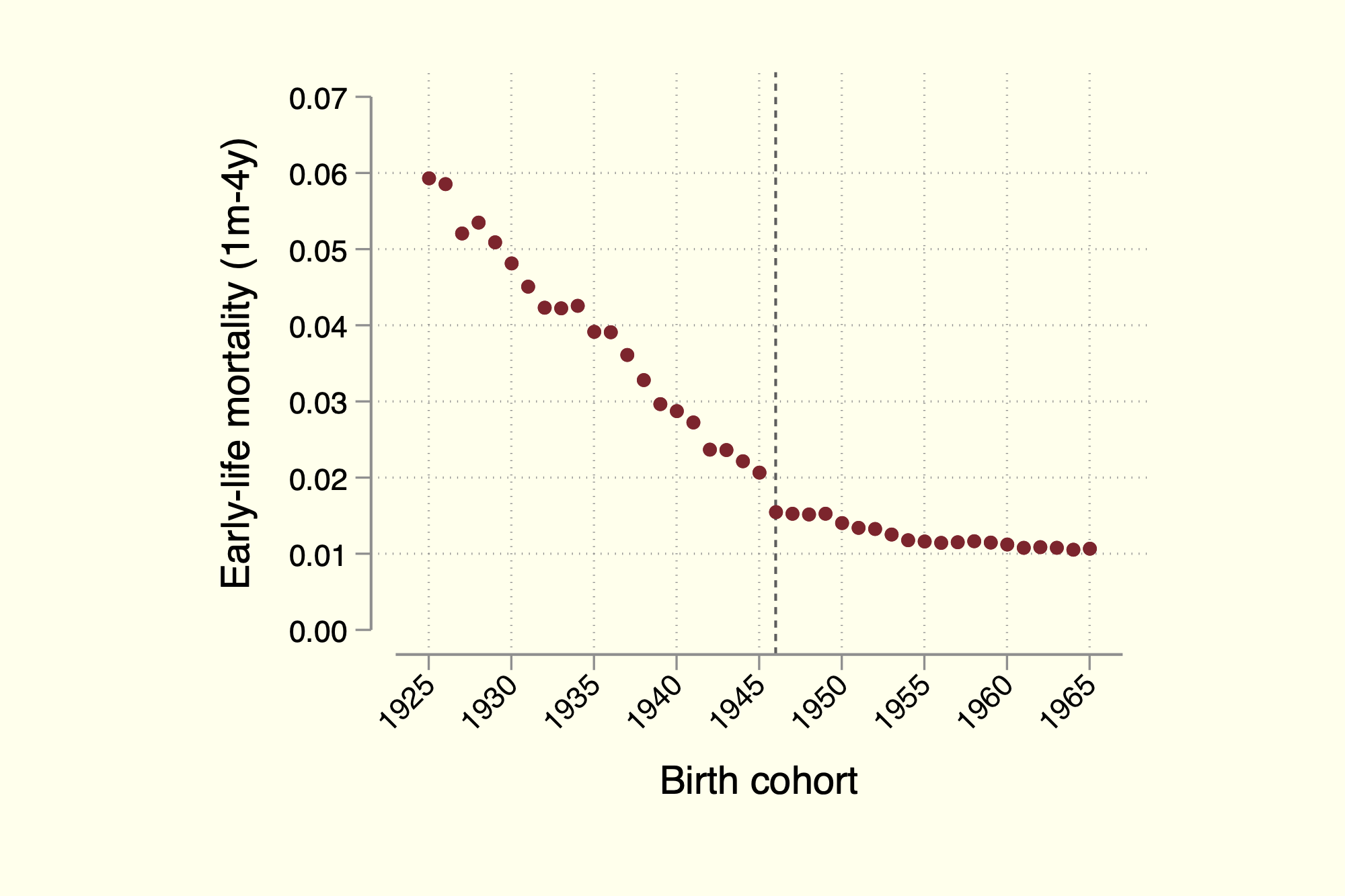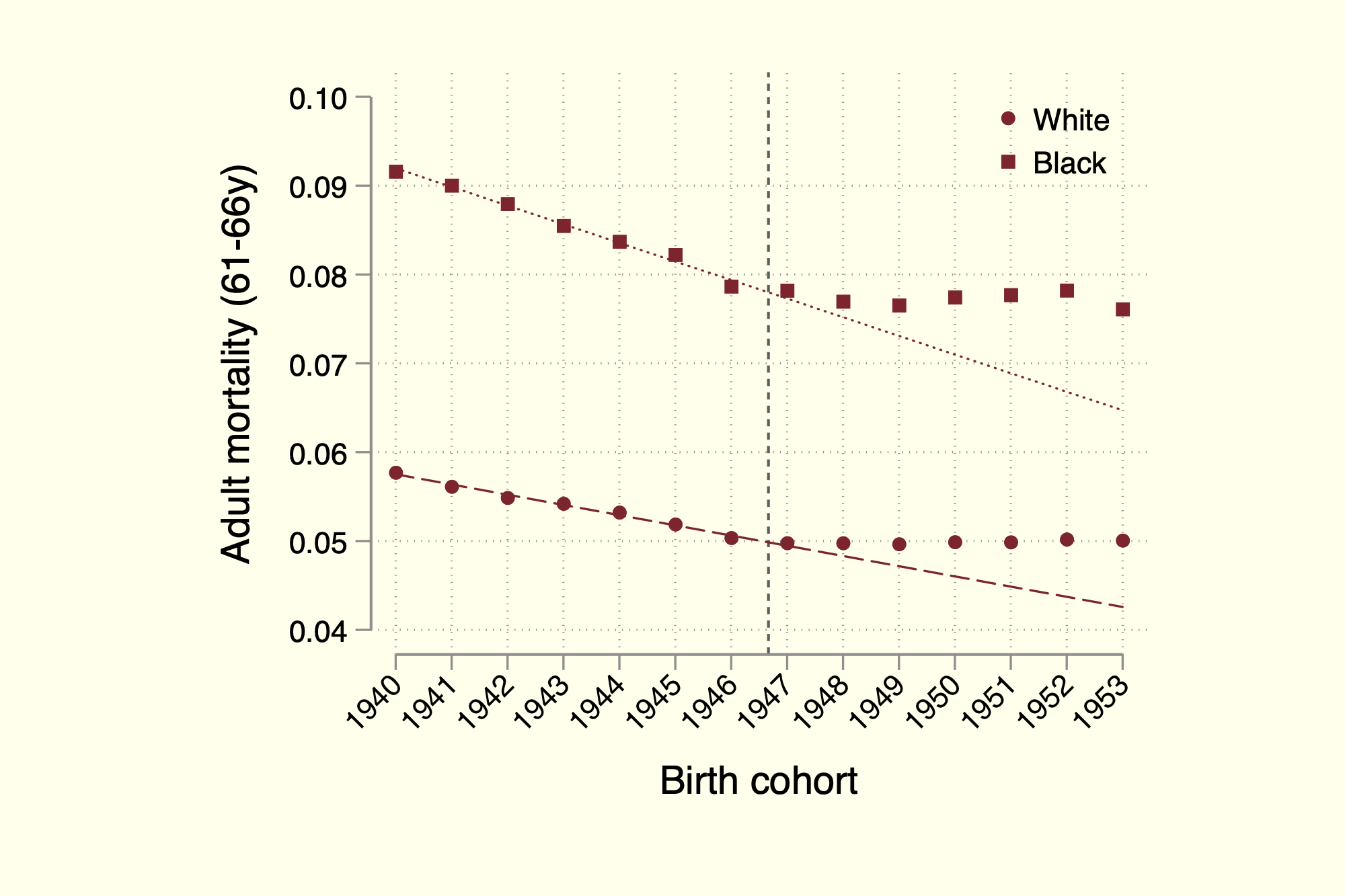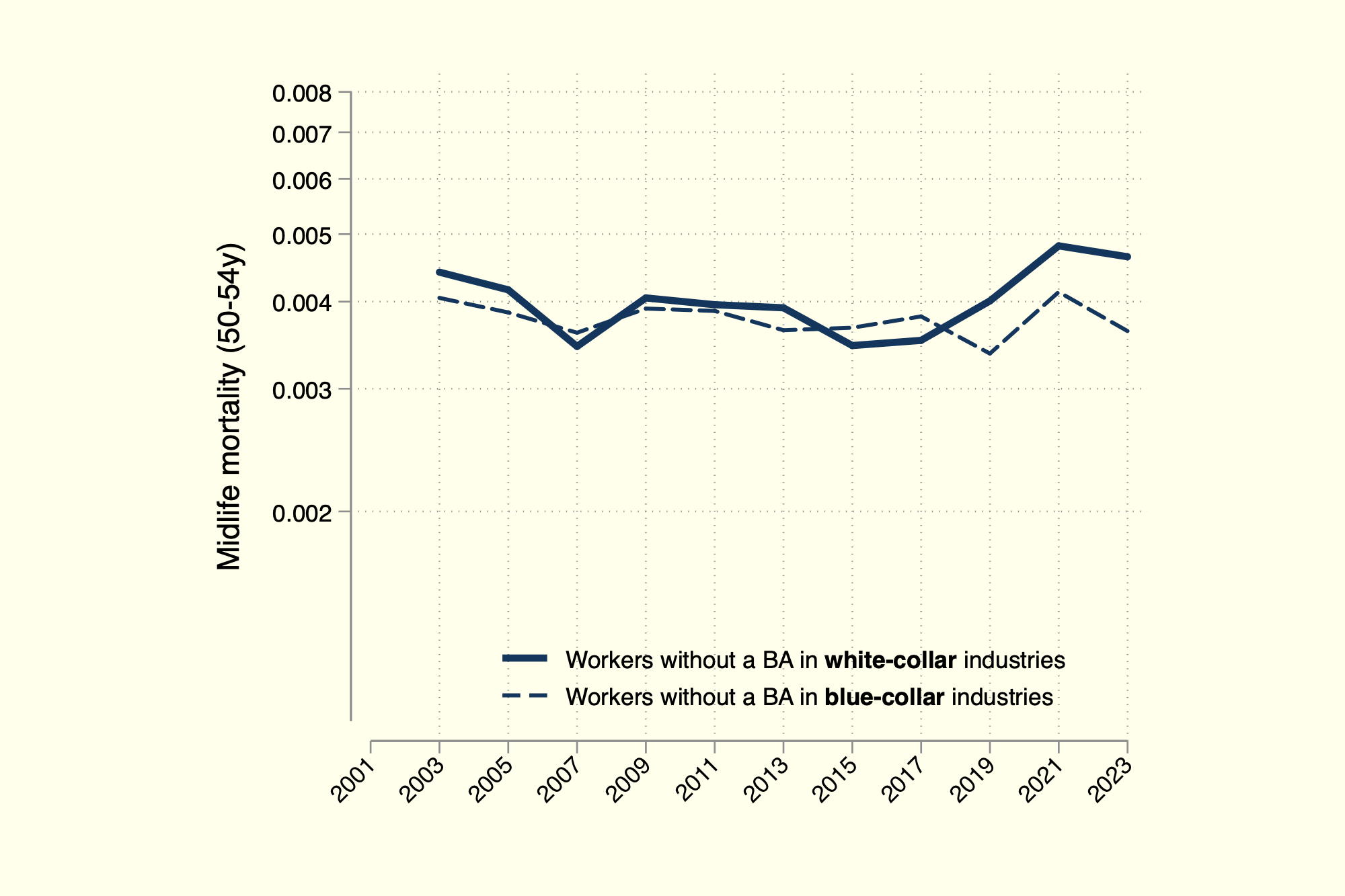The recent and ongoing stagnation in midlife mortality in the United States is among the country's most urgent health crises, yet its primary causes are unknown. This paper posits that the explanation could lie in another concerning trend that unfolded nearly 80 years ago.
Dr. Arenberg is an Assistant Professor at the University of Houston with a joint appointment between the Department of Economics and the Hobby School of Public Affairs. He conducts research in the fields of population health and economic demography.
Latest Research
The Signature of a Mid-century Cohort Malaise
This paper lays out several key facts about the cessation of progress in adult mortality rates for successive birth cohorts in the United States. We document the timing of the “cohort malaise” as well as its pervasiveness, which form a distinctive signature.
Can Job Opportunities Account for the Mortality Gaps by Educational Attainment in the United States?
This paper was invited to an issue of The Russell Sage Foundation Journal of the Social Sciences edited by Anne Case, Andrew Cherlin, and Angus Deaton entitled "Moving Beyond Deaths of Despair: Rethinking Rising Morbidity and Mortality among Americans without a College Degree." Our article considers the role of labor markets.



